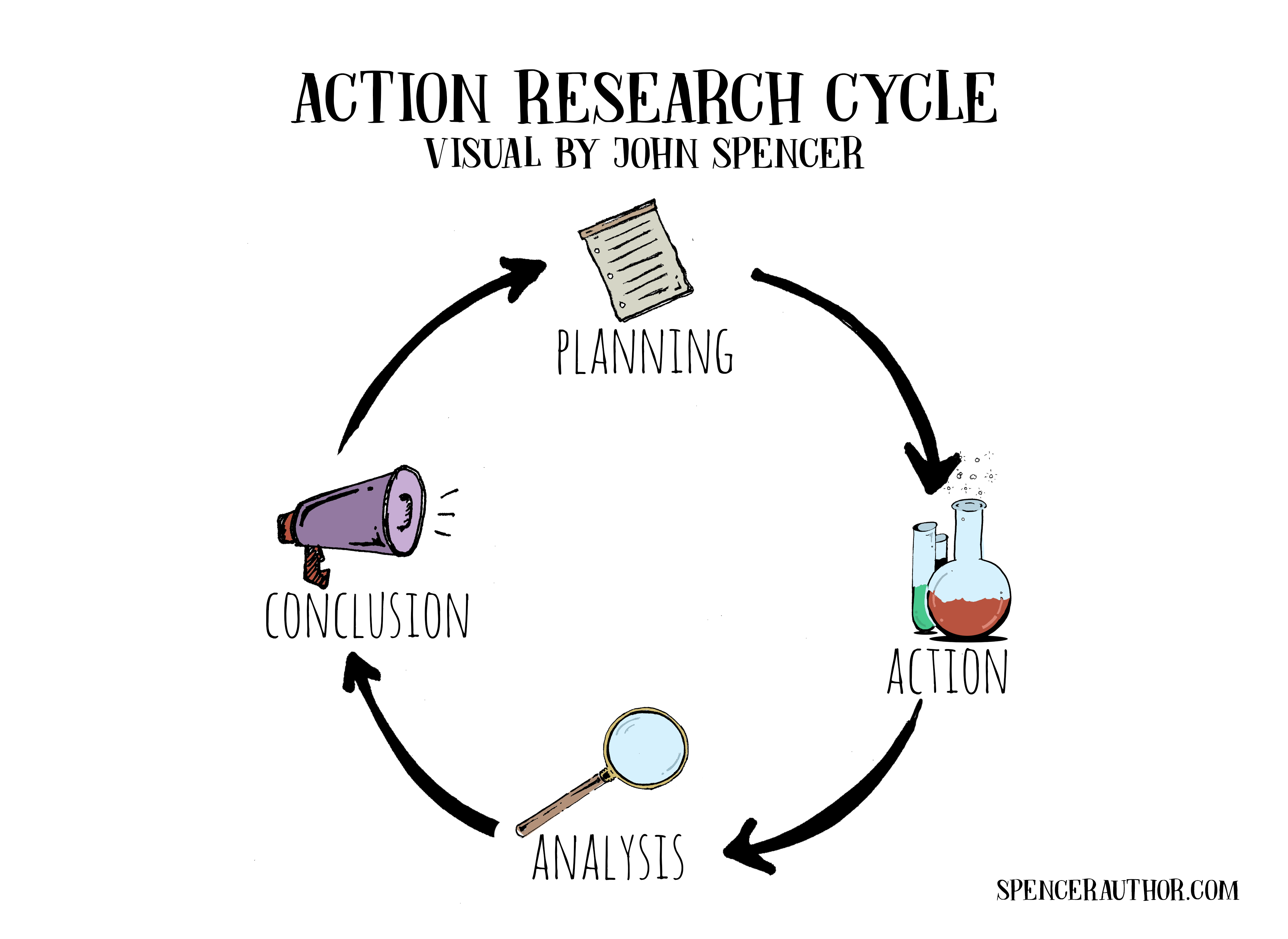12- ACTION RESEARCH
12- ACTION RESEARCH
Definition
Action research is a type of study that involves the investigator with the analyzed sample to look for weaknesses, causes of problems, or aspects to improve. Moreover, it inspects the profound explanation of the final results to give recommendations to better the current state of the sample. This study type usually follows the stages of planning, action, analysis, and conclusions to compile information. After a round of these stages finishes, another one starts with modifications to the investigation design to develop a sustainable condition. These alterations are on those who review the conclusions since they expose aspects unseen at first glance. Therefore, this study is also called Cycle of Inquiry.
Characteristics
- The investigators are those in close contact with the participants, e.g., a teacher scrutinizing their class.
- Statistics are not the end of the study, but the deduction inferred for enhancing the subject state
- The cycle of investigations keeps moving to seek features to adjust and redesign.
- Recommendations are applied in the subject matter since the investigator strives to see changes in reality.
- The action research goal is to solve a specific institution's problem instead of universal knowledge.
Main uses
* Homework protocols to raise students' commitment to delivering it* Applying sensorial learning means (Total Physical Response, for example) to ease the grasp of strenuous topics.* Implementing more virtual lessons to mitigate the long spells of face-to-face classes* Coming from evaluating to assessing activities to promote creativity and self-confidence
Advantages and disadvantages
Pros:- The participants can relate to the investigator nurturing motivation and interest.- Actions and results are synchronized to obtain in-the-moment feedback.- Verifying that the outcomes can be exercised in real time benefits the company or individuals sponsoring the project.- Although not at the same level, conclusions can be helpful in other sectors.Cons:- This research implies more time investment and resources than passive studies to achieve its objectives.- Results could not be worth the spent budget.- Results could not be utilized in different locations because of their particularities.- Ethical limitations may stop the progress of the investigation since participants are introduced to experiments with questionable methods.
References:
All Things Statistics (2022, October 1). Advantages and Disadvantages of Action Research. https://allthingsstatistics.com/miscellaneous/advantages-disadvantages-action-research/Klein, J (2021, May 6). Action Research. University of Central Missouri Online. https://guides.library.ucmo.edu/c.php?g=879745




Comments
Post a Comment